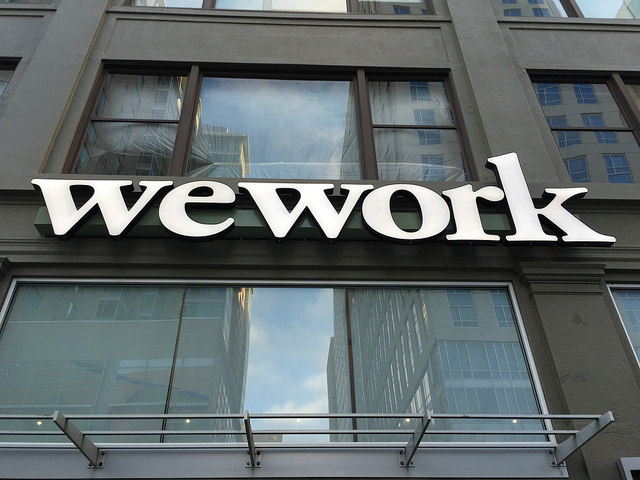I like to think of myself as a *lightly* “environmentally conscious” person. I take short showers, carry around a reusable water bottle, and try to conserve energy (although when faced with my monthly utility bill, this serves my bank account as much as it serves the environment). So, when I heard that WeWork, a real estate company that owns co-working office spaces around the globe, was instating a new vegetarian policy—effectively eliminating meat, poultry, and fish from their catered offerings and events, and no longer allowing its employees to expense out any meals containing meat—my stomach churned. I asked myself, “Is this ableist?”
“No!” I thought immediately. “Vegetarianism in service of environmental sustainability is a public good! If a company wants to decrease its greenhouse gas emissions and reduce animal suffering, there’s nothing wrong with that! More power to them!” But still, the question lingered.
Why? Let me back up a smidge.
I live with a chronic illness that makes eating a wide variety of foods relatively difficult. In short, poultry and fish are the mainstay of my diet, along with a smattering of very specific fruits and vegetables. When people ask me what I can’t eat, I often tell them it’s easier to tell them what I can eat. If you’re still having trouble picturing it, take all of the fad diets you have ever heard about, wrap them up into one giant burrito, declare it inedible, and throw it in the garbage, because no one wants to eat something so limited.
It’s a reality that makes navigating the food landscape pretty challenging, and leaves me frustrated that not only do I have pay more for the right to exist—a huge portion of my paycheck goes to organic groceries, doctor-mandated vitamin supplements, pharmaceutical medications, and out-of-pocket medical services—but, as a former vegetarian, leaves me feeling guilty about doing what is best for my body at the expense of macro environmental concerns.
So, naturally, WeWork’s “lets mitigate the rate at which we are hurtling towards global environmental collapse by changing what our employees eat for lunch” policy felt both a little personal and a whole lot disappointing.
“Are we really going to enact a full-scale environmental change through individual dietary choices alone?” I thought to myself.
Research from the Oxford Martin School says “yes”— as the Guardian reports, if the whole world went veggie, we could cut global greenhouse gas emissions by 63%. That’s a huge amount. So, if you can go vegetarian without it being at the expense of your health or quality of life, no shade, you absolutely should.
“What does environmental conservation look like for disabled or chronically ill folks—folks who need to use plastic straws, or eat meat, or need to use elevators instead of stairs, and so on?”
But, if you can’t make those choices, what are the alternatives? What does environmental conservation look like for disabled or chronically ill folks—folks who need to use plastic straws, or eat meat, or need to use elevators instead of stairs, and so on? What about for working-class folks, uninsured folks, unemployed folks, folks who don’t have the time, resources, energy, or funds to make those environmentally friendly choices across the board? And how do we ensure that an eco-friendly future isn’t exploitative of indigenous resources? That we aren’t being “environmentally conscious” at the expense of black and brown agricultural workers across the globe (an issue we are already struggling with)? And, in the effort to conserve water, is eating almonds, quinoa, and avocado really that much better than eating chicken?
I know WeWork is making a laudable effort at environmental sustainability. I know that their policy has a small, but positive, impact on reducing greenhouse gas emissions and animal suffering. I know that I am sensitive when it comes to reading ableism where it might not be absolutely applicable, and that I am easily enraged when I read about employers stepping out of bounds and into the personal lives of their employees (Hobby Lobby’s refusal to pay for birth control, anyone?). But it doesn’t stop me from wishing I lived in a world where people understood that eating meat or using plastic or opting to take a car instead of public transportation isn’t always a choice, but rather a necessity. Where farming practices were different. Where companies were less invested in conscious consumerism, less provincial in their decision to go-green, and instead chose to leverage their resources in order to enact widespread systemic change, and dismantling the industries that are driving environmental, human, and animal decline in the process.
Photo credit: Ed Schipul/Flickr Creative Commons
More from BUST
Banning Straws Hurts People With Disabilities—And Misses The Point
Please Don’t Call Me Pretty— I’m Just Sick And Skinny
With #DisabledAndCute, Keah Brown Is Changing The Narrative Around Disability


